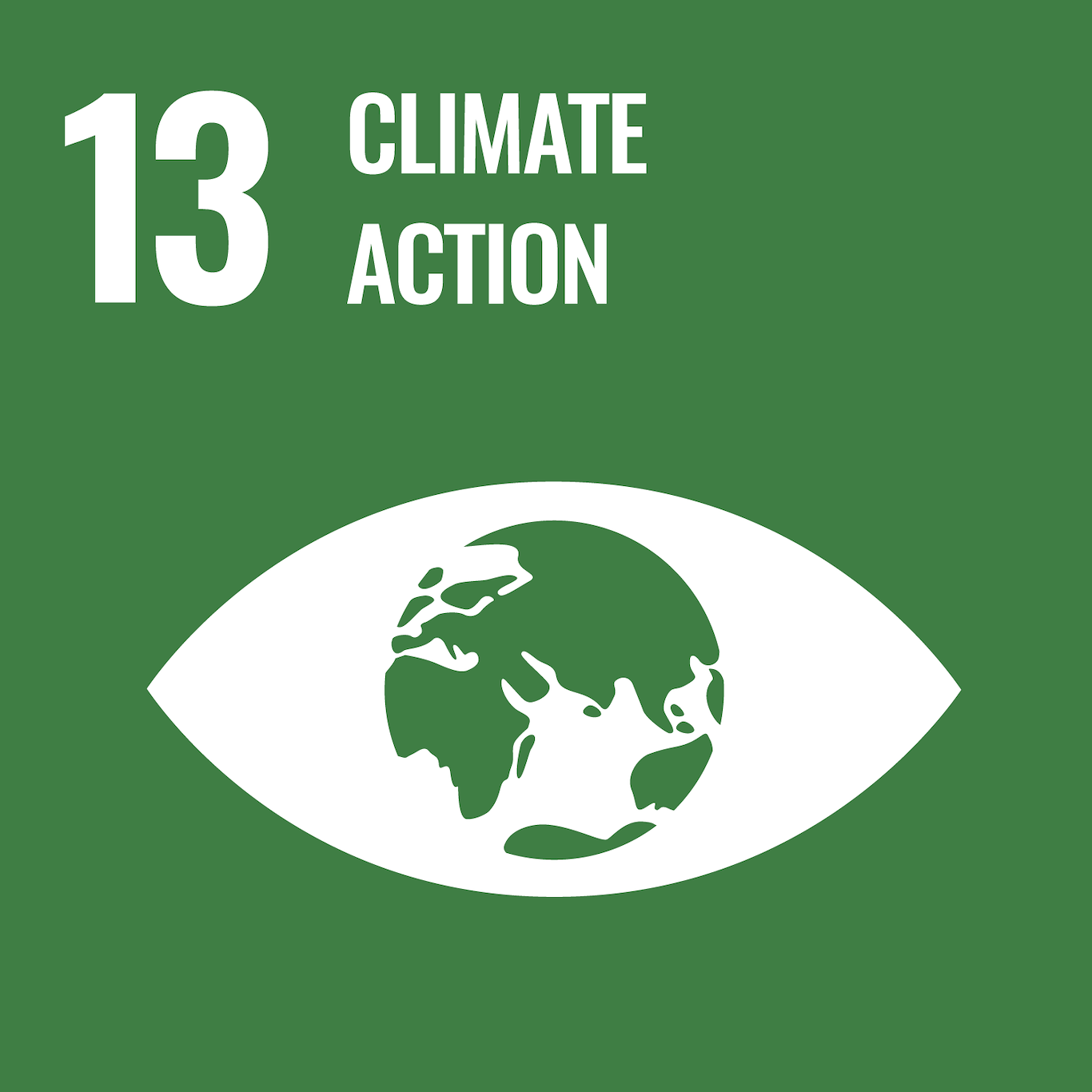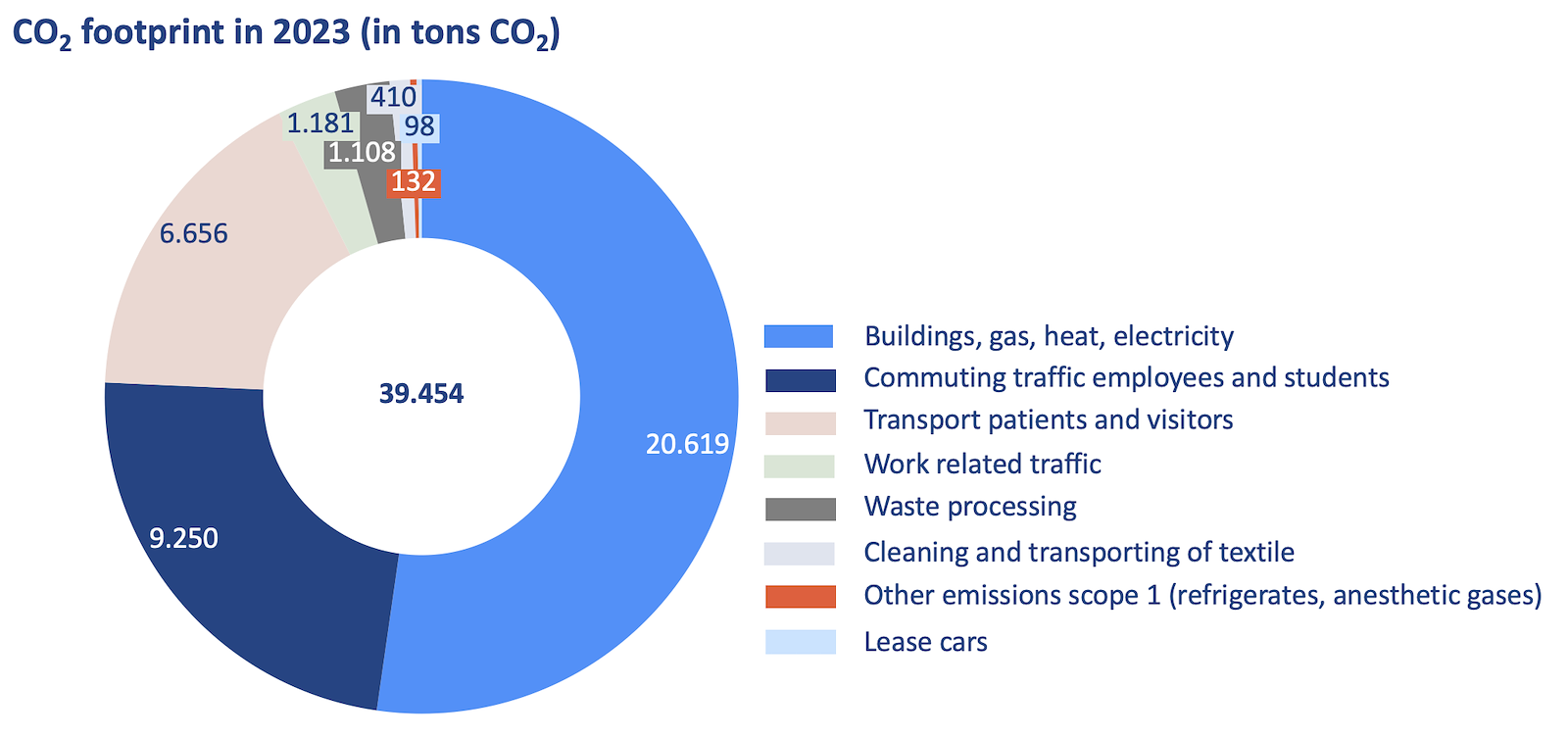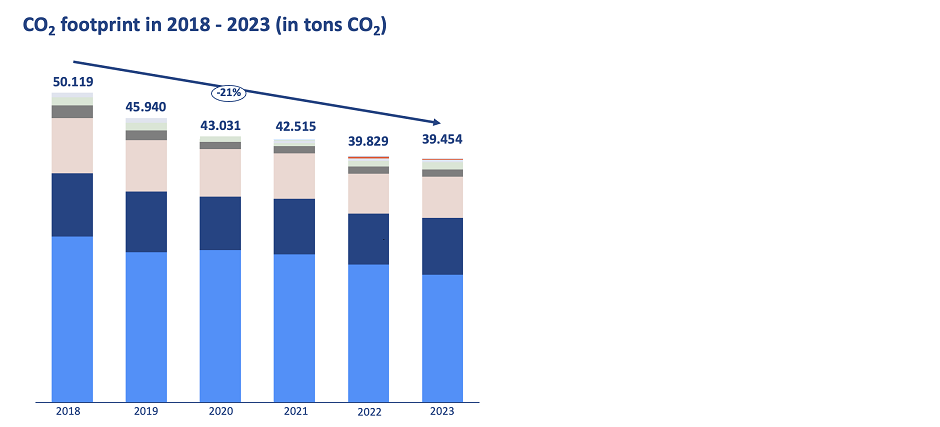CO2-footprint: on schedule for CO2 reduction
In 2023 our overall CO2 footprint was 39,454 tonnes. This means that we are on schedule when it comes to direct CO2 reduction. Our direct CO2 impact mainly comes from buildings (52%) and commuting (23%).

CO2 emissions broke down as follows:

The development of our CO2-footprint the last years:

Establishment of CO2 figures
Our direct CO2 impact (scope 1) is determined through the actual use and emissions of our operational activities, measured with the NFU-footprint tool. The emission factors do not include the extraction of raw materials and supplier production. For energy sources such as natural gas, diesel, and wind and solar power, we use figures that were validated by the Dutch Emissions Authority. For employee and student commuting, we base our figures on average distances and traveling days, and the results of a work-experience survey on the use of transport means. Our indirect CO2 impact (scope 2 and 3) is estimated at 115.485 tonnes based on procurement, according to CE Delft 2019.
More sustainable buildings
In the scope of the Climate Act and the Green Deal for Sustainable Care 3.0 , the aim is to reduce the CO2 emissions of buildings with 55% by 2030 compared to 2018, with the ultimate goal to have climate-neutral buildings by 2050. In 2023 we reassessed our CO2 roadmap for increasing the sustainability of our buildings. In this way we can reach our goals subject to financing.
More sustainable transport
In the scope of the Green Deal for Sustainable Healthcare 3.0 we are aiming for a 30% reduction in CO2 emissions from transport by 2026 and 55% by 2030 compared to 2018. In 2023 we drew up a mobility plan, introduced a 100% public-transport reimbursement in the new CLA, and made preparations for the sustainable-transport testing ground.
Sustainable-transport testing ground
A significant source of CO2 emissions is the mobility of our 12,000 colleagues. With the growing scarcity of staff we want to keep each colleague satisfied. It is therefore important to have a clear understanding of our people's motivations and obstacles in terms of sustainable transport to UMC Utrecht. To look together for suitable, effective, and feasible solutions, we developed a testing ground for sustainable transport in 2023. We launched this initiative in the spring of 2024, together with 300 colleagues. And together with Pon and its subsidiary Shuttel and Hely, and TU Delft. The testing ground includes higher reimbursement for cycling, free public transport, and a mobility hub with shared E-bikes at Utrecht Central Station.
Cycle to work more often
In 2023, in collaboration with Goedopweg , the province of Utrecht, and Utrecht Science Park, we organized 'Utrecht helps you into the saddle': colleagues were able to try out electrical bicycles and borrow them for commuting. A bike challenge resulted in 100,000 km of cycling, supported by the 'I’m cycling' app that turns red lights to green. We are also expanding our ‘CLA à la carte’ arrangement whereby colleagues can spend up to € 2,500 tax free on bicycle-related costs. 1,733 colleagues made use of this in 2023.